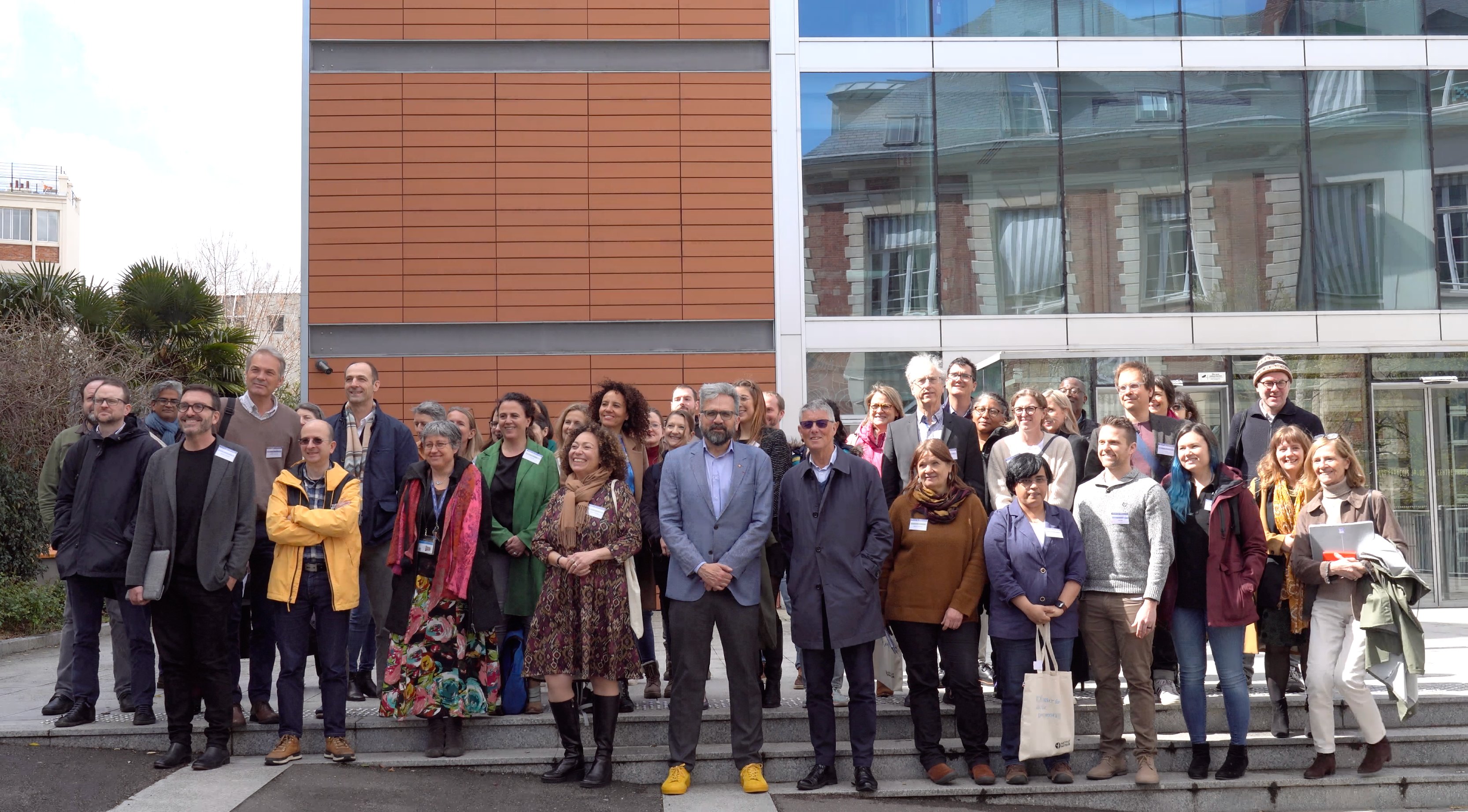
The Quantitative Bioscience Institute (QBI) at the University of California, San Francisco (UCSF) and the Institut Pasteur came together in April to host their third joint-symposium in Paris focused on infectious diseases, to cultivate new synergistic interactions between scientists from each institution and to solidify the strong and diverse alliance.
The event symbolized a new phase in a growing partnership between the two research powerhouses, following an announcement last October of a comprehensive agreement to jointly establish the Institut Pasteur-UCSF QBI Center of Excellence in Emerging Infectious Diseases in the San Francisco Bay Area, and a visit from a delegation of group leaders from the Institut Pasteur to San Francisco in February.
The collaborative ties between QBI and the Institut Pasteur date back to 2019, when budding partnerships began to take shape at the inaugural QBI/Institut Pasteur Symposium on Infectious Disease. Combined efforts in the last several years to exchange and merge tools, ideas, and approaches to study infectious disease have reinforced bonds between experts in Paris and San Francisco, leading up to the formalized partnership in the context of the developing Center.
This initiative, co-led by Nevan Krogan, Director of the QBI, Professor of Cellular Molecular Pharmacology at UCSF, and senior investigator at Gladstone Institutes, and Carla Saleh, Professor in the Department of Virology at the Institut Pasteur, aims to train scientists, compete for sponsored research funding and attract philanthropy to become a world leading center in the study of emerging infectious diseases and pandemic preparedness. This will involve a long term development of ambitious programs on immersion, infectious disease, clinical work and epidemiology to form a working infrastructure that allows for what Professor Krogan considers a “proactive rather than reactive” approach to facing the next pandemic.
“I think what we've learned during this pandemic is that we just weren't prepared. So an investment in infrastructure and investment in collaboration now, before the next pandemic, I think is crucial,” said Professor Krogan.
A key to the momentum and success of the Center is bringing a diverse group of people together and creating an orderly system to facilitate the exchange of knowledge, which Professor Saleh identified as the main objective of this most recent symposium in Paris.
“During these two days we really dedicated a lot of time to the science. And what we were hoping is that scientists from both sides of the ocean will discover that they have a lot in common and there are a lot of different ways that they will enrich their science. In this Center there is a place for everybody,” said Professor Saleh.
As a next step, the institutes have launched requests for applications for scholarships for women in biosciences and a sabbatical program designed to exchange top scientists from the Institut Pasteur and UCSF.
Both institutes look forward to continuing to augment this very special relationship and seeing the potential of this partnership actualized.